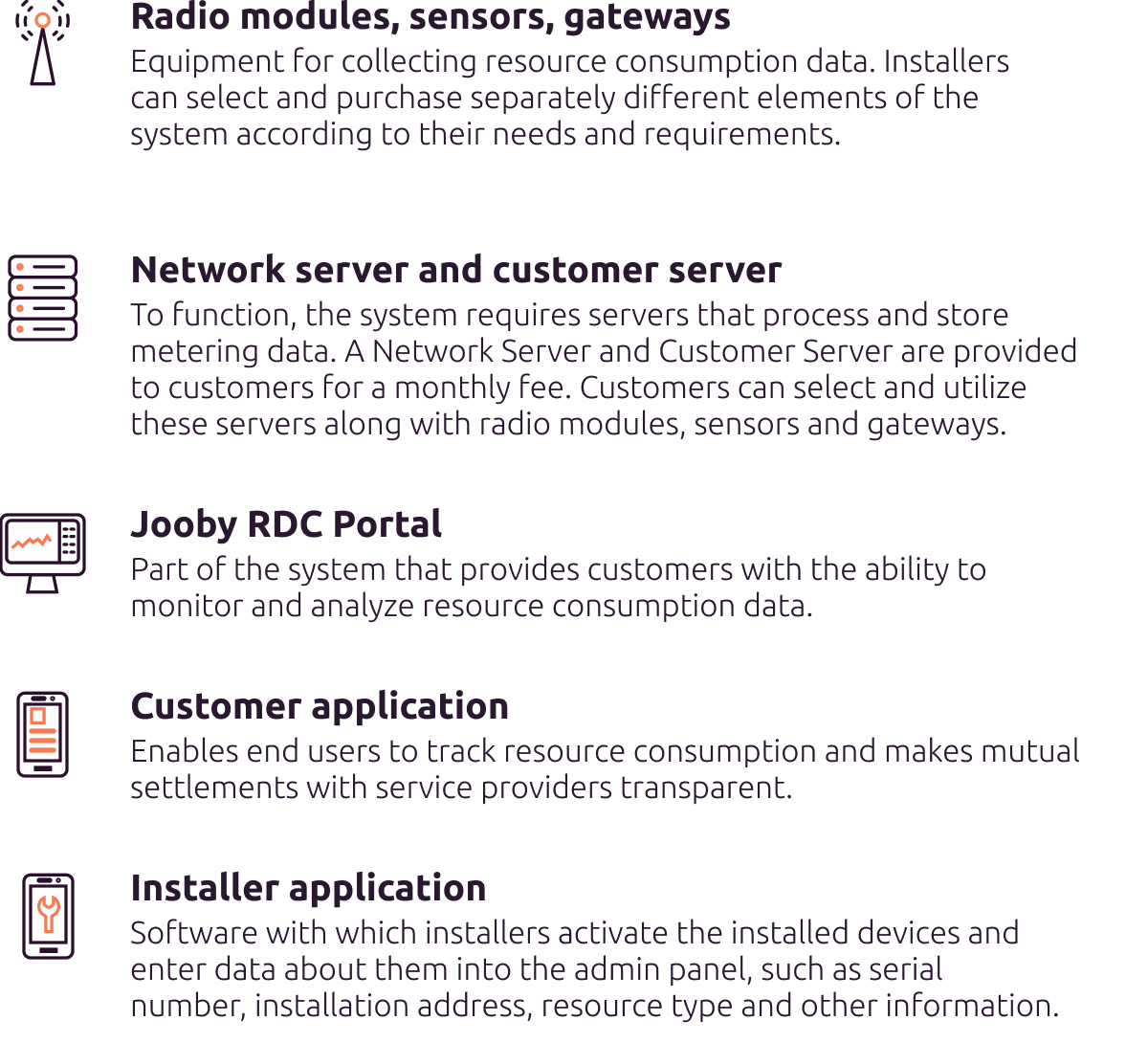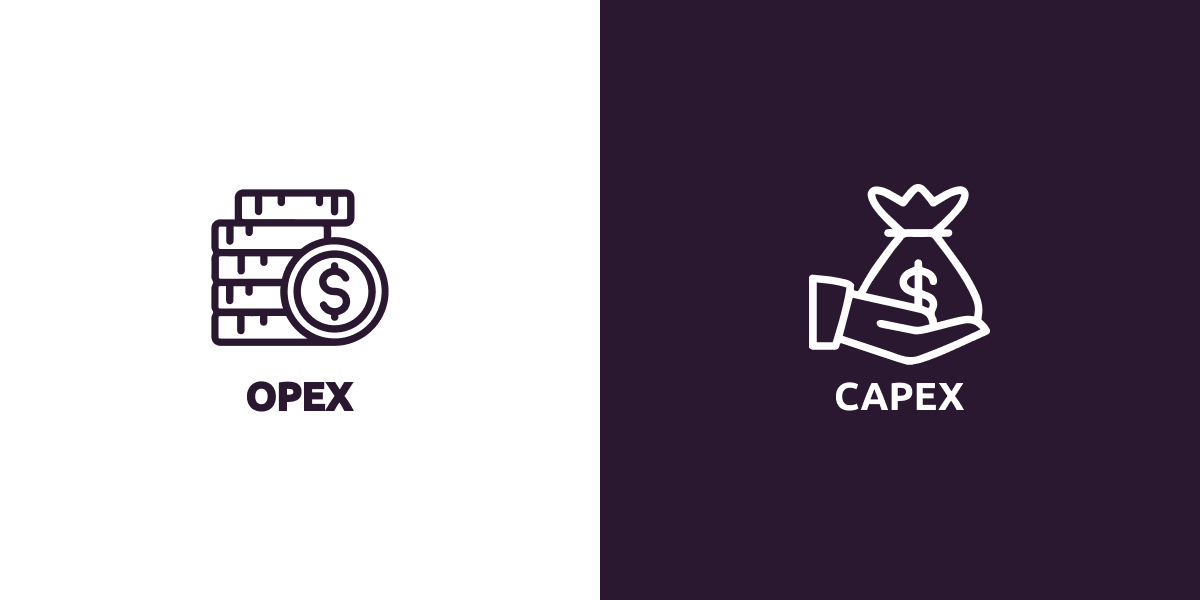Due to the constant development and interpenetration of technologies and business processes, there has been an increasing demand for qualified professionals who are able to integrate various components and systems into a single, cohesive unit. For such professionals, called integrators, we can already see developed solutions that allow them to start earning profits with almost no initial investment.
In this article we will tell you about the Jooby RDC solution and explain how it can help integrators earn money.
What is an integrator?
An Integrator is an expert who specializes in finding different components, subsystems or technological solutions and ways of integrating them into a unified, harmoniously functioning system.
What do integrators deal with?
The main task of an integrator is to create comprehensive solutions that meet the needs and requirements of the customer. Such specialists analyze processes, identify bottlenecks and combine the technologies necessary to optimize the activities of the enterprise, municipality, management company and other institutions.
This material is about integrators who work in the sphere of resource collection and metering systems — water, electricity, gas and heat.
Jooby RDC: solution for integrators
In the framework of our solution, integrators and technology providers can either work with our technical team or independently to build networks for municipalities, industrial enterprises, management companies and other institutions, providing customers with complete solutions for automating resource metering and installing the necessary devices.
What is Jooby RDC?
Jooby RDC is a solution that provides automatic recording and transmission of gas, water, electricity and heat meter readings through hardware and software components.
The Jooby RDC system includes the following components:

What do we offer integrators?
Our business model provides flexible solutions that allow integrators to create their own unique products and services based on our technologies. We provide customers with access to our servers and give them the ability to expand the functionality of the solutions.
Upon request, we can provide “white label” solutions, which is an opportunity to sell products under your own brand. Integrators can provide their customers with their own unique offers and develop their business using our technologies.
Another opportunity for integrators to earn is to become intermediaries and provide our solutions to their customers.
How it works:
- Solution selling. Integrators can sell licenses for products and equipment that contain our technology to their customers. In this case, they will set the final price of the product, taking into account their costs and desired profit.
- Service and technical support. Integrators may provide their customers with installation, maintenance and technical support services for our products. This includes installation of sensors, customization of software, monitoring of system performance and resolving of any issues that arise.
- Additional services. Integrators may also offer their customers additional services related to the automation of resource accounting and data delivery. One of the options is to develop and implement additional analytical and data solutions that will help customers optimize resource consumption and improve accounting efficiency.
What the step-by-step procedure of implementing our solution looks like
The process of implementing the solution consists of the following steps:
-
-
- Research and analysis. Initially, we work with the integrator to analyze the customer’s needs and research their infrastructure to determine the best approach to implementing our solution. If the meter fleet of the integrator’s customer includes devices for which we do not have sensors, they need to be analyzed and researched. We find out exactly what sensors are needed for integration with these devices and what data they collect. To do this, we request a sample meter for our lab and produce a sensor for it.
- Planning. In this phase we develop a detailed implementation plan, defining milestones, timelines, resources, and responsible persons to ensure effective project implementation.
- Infrastructure preparation. We install the necessary equipment and customize the system to work with our solution.
- Testing and optimization. Once the system is implemented, we test it for functionality and adjust it to ensure optimal performance.
- Training. We train the customer’s staff: we show them how to effectively use and manage our solution.
- Launch. After successful testing and training, we put the system into full operation.
- Support and maintenance. We provide ongoing technical support and maintenance for the customer to meet their current and future needs.
- Scaling. If necessary, we scale the solution, expanding its functionality and opening up new areas.
Two models of developments in the communication between the integrator and their customer:
- The first option: the integrator’s customer already has their own LoRaWAN network. We analyze their network and if the compatibility of our solutions with the existing equipment is confirmed, we simply sell our sensors to the customer.
- The second option: If the customer does not have a LoRaWAN network, we give them access to our own network server and customer server. At the customer’s request, we can provide a gateway and configure it. When the equipment is installed and integrated, we will train the staff to use the solution.
Options in business model
We have two types of cooperation models for our customers: OPEX (operating expenses) and CAPEX (capital expenditures).

We offer an OPEX-oriented business model based on providing data “as a service”. Customers pay a monthly subscription fee to use our solutions or pay for the amount of resources consumed. This approach avoids large initial investments and reduces financial risks for customers, as they only pay for actual use of the product. In this approach, the integrator is not charged for the installation of the equipment: they only pay for the resource accounting data transmitted to the system. This model allows you to quickly start cooperating with us without capital investments in the device fleet.
For integrators who prefer capital expenditures, we offer a CAPEX-oriented business model. In this case, you buy licenses to install our solutions and equipment on your systems. This business model option may be preferred by customers who already have their own IT infrastructure and the resources to support and maintain it.
In both cases, we provide technical support, upgrades and product maintenance. Customers can focus on their core business with minimized IT infrastructure and staffing costs.
With our flexible business models we are able to meet the needs of different customers, taking into account their preferences and financial capabilities.
Benefits of Jooby RDC solution for integrators
- Tailor-made solution: integrators tend to choose contractors that offer customized and personalized solutions. Therefore, an advantage on the market is gained by companies that are able to quickly and efficiently implement products or services tailored to the customer’s requirements.
- Ease of implementation: the solution can be installed quickly and easily as its implementation does not require special qualifications.
- Consulting and support: our technical support will ensure the easiest integration of solutions into your customer’s business.
- Flexible cooperation opportunities: the integrator can choose any of the proposed cooperation models.
The increasing complexity of the technology environment is driving businesses to increasingly turn to integrators. These specialists are becoming key figures in the development and implementation of IT solutions, ensuring the efficient operation of all company systems. Consequently, with the rise of digitalization, this niche is becoming ever more popular for businesses.
The need for automated solutions, their implementation, and for integrators in particular will only grow, so they will have new opportunities to increase profits with the Jooby RDC solution.
 2340
2340






